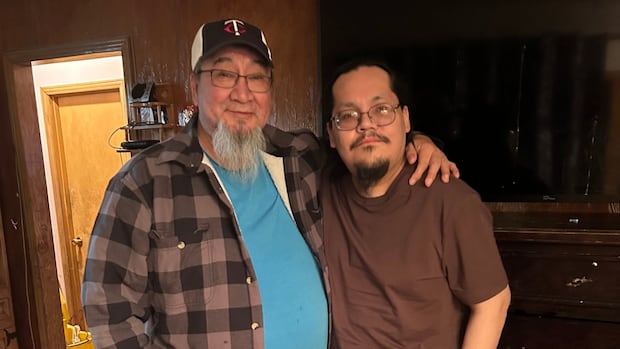Former military language and cultural advisers — who at times carried out some of the most difficult and dangerous assignments of Canada’s war in Afghanistan — are now suing the federal government for discrimination over the alleged failure to properly train and take care of them following their service alongside combat troops, CBC News has learned.
A statement of claim was filed on May 30 in Ontario Superior Court on behalf of 30 of the men — Canadian citizens of Afghan origin — who were recruited by the Defence Department to help the army on the ground during the brutal Kandahar campaign.
The federal government was served notice of the $50 million discrimination suit last Thursday.
Known by the acronym LCAs, the advisers were tasked with helping commanders and troops overcome language and cultural barriers. But they also conducted dangerous intelligence gathering on the Taliban, warned of attacks and eavesdropped on insurgent communications.
They were civilians, not soldiers.
Many of them returned to Canada injured and broken, only to be denied care by the federal government because their contracts with the Defence Department ended after their time overseas and their health concerns, including post-traumatic stress disorder, emerged afterward.
“After years of dedicated service to their country, LCAs were abandoned in the community,” said the court filing, which noted that many of them had secret clearance and could not discuss the operations in which they had been involved.
Department ‘actively frustrated and undermined’ cases, suit claims
The crux of the discrimination claim is that the advisers “were recruited based on their identities as Muslim Canadians of Afghan descent and were subjected to the same risks and hazards” as soldiers, yet, “Canada deprived LCAs of the same benefits and supports it provides to soldiers in recognition of these risks and hazards of war.”
The former advisers also claim they were discriminated against by not being given adequate pre-deployment training to prepare for the hazards of combat.
CBC News has followed the plight of the men since 2019, and their case has also been championed by the Canadian Forces Ombudsman’s office.
The Defence Department, in response to media stories and watchdog pressure, sent the advisers’ cases to the Ontario Workplace Safety and Insurance Board (WSIB), which is where most Defence Department cases involving civilian injury end up.
The lawsuit claims the Defence Department “actively frustrated and undermined” the cases of the advisers by the “withholding of critical information from the WSIB and its imposition of confidentiality obligations.”
The actions, the court filing says, limited the ability of the LCAs to disclose information and that contributed to the rejection of most of their serious injury claims.
The federal government has not responded to the claims in the court challenge.
‘I would do it again and again’
One of the former advisers, Jamail Jushan, says it’s been a disheartening journey.
“We were forgotten — ignored,” Jushan told CBC News in an interview, adding that everyone he and fellow LCAs have dealt with have been sympathetic, but unmoved.
“They appreciated our work, they appreciated our mission, but they paid lip service and there was no action.”

Jushan was among a handful of former Afghan advisers who demonstrated in front of Parliament on Remembrance Day last year, hoping to draw attention to their plight.
Despite feeling ignored and suffering from post traumatic stress disorder, Jushan says that if someone asked him to serve again, he would.
“I would do it again and again,” Jushan said. “I am sick, but if something happened to Canada, this is my country, I will defend these people. I will defend this country. I sacrificed myself. I sacrificed my family. I sacrificed everything. I love this country.”
He said Canada gave him a home and a sense of belonging before the war.
Abdul Hamidi, another adviser, said he’s not so sure he would have gone had he known what it was going to be like and how he would be treated.
“I’m a Canadian man. I’m a human being. I am one of you,” said Hamidi, who was given a partial disability assessment, though it doesn’t cover all of his injuries. “There’s nothing different between us. So if you brought me to this level you have to answer me.”
Hamidi says that in terms of experiences and injuries, the only difference between him and those he advised in Afghanistan is that they carried the title of soldier.
Afghan Canadians who worked with the military as interpreters and cultural advisers during the war say they have been ignored by the federal government and are still fighting for the same recognition and health benefits as the soldiers they served beside.
No compensation despite ombudsman recommendation
Emma Phillips, one of the lawyers who filed the Charter discrimination case, says the military has publicly acknowledged the crucial role the men played in the Kandahar campaign, but has turned its back on them.
The Canadian Forces Ombudsman’s office has recommended that the advisers be granted a special compensation package, similar to one handed out for cadets injured in an accidental grenade explosion in the 1970s. In that case, cadets were eligible for $42,000 with an additional financial award going up to $310,000 for those seriously injured.
The Defence Department has so far refused to budge.
Phillips says the government’s ongoing refusal to grant the advisers compensation is “a tragedy, really.”
An investigation by the ombudsman six years ago found that care for the civilian contractors during the war was an afterthought.
Before the beginning of major combat operations in 2006, the department briefly considered implementing a policy to limit the duration and scope of civilian deployments. But the idea was inexplicably dropped, and it wasn’t until 2007 that a temporary directive was drafted.
The ombudsman’s 2019 investigation found that the order was not implemented until November 2011 — four months after Canadian troops had withdrawn from fighting the Taliban.







